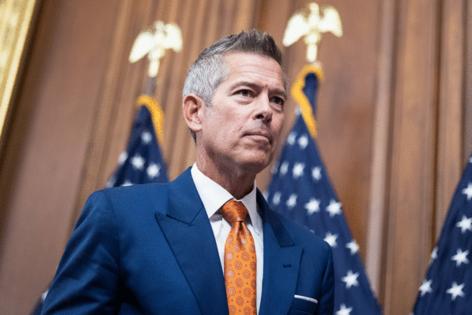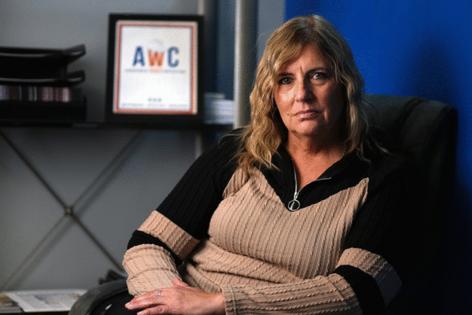Small firms reeling after US Transportation Department guts diversity subcontractor program
Published in Business News
President Donald Trump’s rollback of diversity programs has now hit a longtime mainstay of projects that use U.S. Department of Transportation funds.
The more than 1,300 Minnesota small businesses owned by women, people with disabilities or people of color who, until last month certified under the federal Disadvantaged Business Enterprise (DBE) program were told they would have to reapply.
But they were given a catch: They had to explain in the questionnaire how they qualify as disadvantaged without referring to their gender or race.
The new guidelines are leaving many of the small businesses wondering if it’s even worth trying to be part of the program.
They also wonder if they’ll win any more federal contracts. The DBE program came out of government diversity goals that were designed to boost the number of subcontracting companies on jobs that were owned by women or people of color.
LouAnne Loewen worries the decision will force her to shut her J&L Jobsite Solutions business in Savage. The company’s payroll is about $465,000.
Loewen said one large customer recently told her the U.S. Department of Transportation suspended the DBE diversity goals. Without a requirement to hire female subcontractors, the customer thinks it will handle the work in-house.
The change cut J&L out of four jobs worth roughly $225,000, she said. Luckily, she said she has another large customer that said it still needed her company.
“I’m disappointed that [the department] would not consider the impact it would have on some of the companies like mine,” she said. “They did this with no forewarning.”
Last week, 90 members of Congress, including U.S. Reps. Angie Craig and Kelly Morrison of Minnesota, wrote a letter to Transportation Secretary Sean Duffy protesting the changes.
The changes “will add chaos, cost and delay to transportation projects and will have ripple effects throughout the construction industry,” the letter said.
Nationwide, 50,000 companies are hired as subcontractors under the DBE program for hundreds of roads, transit, aviation and airport concession projects.
The program began to address a disparity in the number of women and people of color hired to complete government projects. Until last month’s sudden change, DBE subcontractors often performed 2% to 15% of the work on federal projects.
The Trump administration’s decision to upset such goals is being challenged in court by 23 states. Regardless, the Department of Transportation suspended the DBE program in October without waiting for a final ruling.
Entries into the Federal Register said the rule change was designed to ensure that federal contract programs were conducted in a “nondiscriminatory fashion” without “race- and sex-based presumptions of social and economic disadvantage.”
The Departments of Transportation and Justice have determined that such presumptions “are unconstitutional,” the Register entry said.
The businesses did not know about that rule change until a few weeks ago, when the Metropolitan Council, Metropolitan Airports Commission, Minnesota Department of Transportation and city of Minneapolis sent out letters to subcontractors whom these agencies had previously certified as disadvantaged business enterprises.
No DBE status will be recertified until all applicants have been re-evaluated, which could take months or a year, worried subcontractors said.
“Our small businesses are going to be out millions of dollars of work now without any of these [diversity] goals,” said Barb Lau, executive director of the 250-member Association of Women Contractors, which is based in St. Paul.
She pointed to the massive $1.8 billion I-535 John Blatnik Bridge project in Duluth, which is about to begin the bidding process.
The DBE subcontractors that were counting on the work next year are suddenly uneasy about where they will find replacement work.
“That will hurt,” Lau said. “The core intent is to remove barriers to the participation of DBEs in DOT contracts.”
Other women and minority contractors said they worry that the DBE suspension will reverberate through other layers of work opportunities. Many state and city programs write diversity contract goals based on the language in federal contracts.
“Projects with any federal funds under MnDOT, the Metropolitan Airports Commission and The Met Council have historically been required to have DBE goals applied to them,” said Lau, who also sits on the Ninth District Federal Reserve Bank’s advisory council.
The companies certified under DBE were more than construction subcontractors. They include consulting, marketing, and even co-working spaces.
Alex West Steinman, co-founder of the Coven, a co-working organization, said the new rule has unleashed confusion and frustration among fellow Twin Cities small businesses.
Like her, they are women or entrepreneurs of color who were encouraged to apply for federal DBE status by city and state officials following the pandemic and George Floyd’s murder. The certifications were seen as a way local small enterprises could learn about, bid on and win federal jobs to grow.
Now, local entrepreneurs are appalled by the abrupt change, West Steinman said. Many worry the program won’t be replaced, and that it will be harder to learn about and bid on thousands of federal contracts.
Certification meant there was a large database of businesses owned by women and people of color that prime contractors regularly used to find new suppliers and project workers, West Steinman said.
So the department’s rule change “will hurt Black and brown and women entrepreneurs in the long term. This [affects] more than just these federal opportunities. This has bigger implications for what will happen with corporate entities,” West Steinman said. “We already see this having a trickle-down effect to the private sector.”
West Steinman, who co-founded the Coven in Minneapolis eight years ago with four other Black women, said the business has lost about $100,000 worth of corporate sponsors since January, when Trump first issued his executive orders to stop diversity programs.
The targeted anti-diversity actions make West Steinman determined to help other female and minority business owners network, make contacts and find new contracts, she said.
Sheletta Brundidge’s Twin Cities production company went through the rigorous process to be recertified under DBE in May. Now, all that work was for naught, unless she goes through it again with the new guidelines.
“It’s insulting,” she said. “Enough. We’re not going to do it.”
The decision could impact a third of her business. She said a few clients reached out saying they will still retain her services, though.
“My concern is, with those other small business owners who are just starting out, who need these opportunities, these points, this certification [and] the exposure,” Brundidge said.
Jeff Anderson, founder of ATEK Distribution in New Hope, is white and a disabled veteran. He said he’s a relatively new DBE contractor but knows several other business owners who really focus on procuring federal and state projects because of the program.
“If they get most of their business because of the set-asides and are suddenly locked out of that? It’s going to be a big deal,” he said.
©2025 The Minnesota Star Tribune. Visit at startribune.com. Distributed by Tribune Content Agency, LLC.















Comments